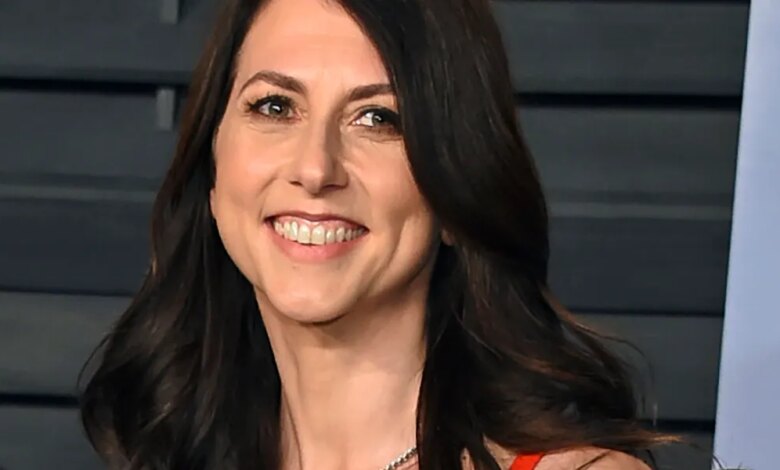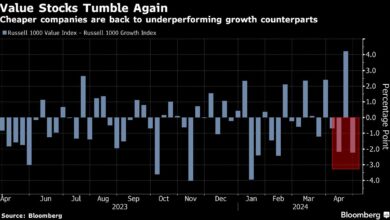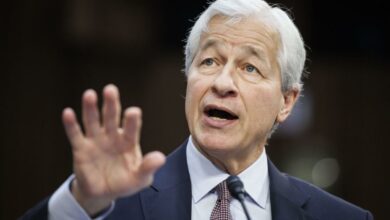MacKenzie Scott’s game-changing philanthropy still mystifies nonprofits: ‘Her gifts are super generous, but unfortunately, they don’t provide long term sustainability’


Much about billionaire philanthropist MacKenzie Scott’s giving remains a mystery, but those receiving grants from her recent open call for nonprofits do offer some insights, experts say.
Scott’s grants, announced in March, largely fall in line with her usual themes — with equity and justice, education, health and economic security and opportunity being the largest categories. However, a slightly larger percentage of the most recent grants went to democracy-focused organizations, said Gabrielle Fitzgerald, founder and CEO of Panorama Global.
Organizations working on “race and ethnicity” and “youth development” were the two largest categories according to the database of gifts on her Yield Giving website. Generally, Scott has given the most grants to organizations in the U.S. South, while in the latest round, California and New York were the states with the largest number of recipient nonprofits.
Understanding Scott’s giving, which she doesn’t discuss beyond essays on her website, remains a high priority for many nonprofits dreaming of receiving one of her large, unrestricted gifts. Scott, who has pledged to give away more than half of her wealth, said she has donated more than $17.3 billion to more than 2,300 nonprofits since 2019. However, her net worth is currently about $37 billion, according to Forbes, about $2 billion more than she had after her divorce from Amazon founder Jeff Bezos was finalized.
To expand her donations, Scott last year offered nonprofits the chance to apply for $1 million grants through a new initiative run by Lever for Change. She required nonprofit applicants to have annual budgets between $1 million and $5 million, capturing a small percentage of the more than 1.8 million nonprofits in the United States. Ultimately, Scott decided to donate more than the $250 million she initially pledged to applicants.
Scott and her team chose 361 nonprofits out of a pool of 6,353 applicants and awarded them either $1 million or $2 million, providing an overall $640 million in gifts.
“She’s been an inspiration for a lot of people, but not a lot of people are acting upon that inspiration,” said Pamala Wiepking, a professor at the Lilly Family School of Philanthropy at Indiana University, who has studied the impact of unrestricted giving on nonprofits.
Along with her coauthors, Wiepking found a mismatch between the missions of many funders who want to effect major social changes and the way they actually give grants, which are often for specific projects for limited periods of time. She regularly speaks with funders who are interested in learning more but she doesn’t see many changing their patterns.
Fitzgerald, of Panorama Global, which has studied Scott’s giving, including the impact of these large gifts on nonprofits, hoped Scott would continue to roll out additional applications, especially to smaller organizations.
“I think the interesting question will be: Will she drop down to the below $1 million annual budget nonprofits in the future?” Fitzgerald said. She also urged Scott to consider offering organizations she’s previously supported another round of funding, saying, “Her gifts are super generous, but unfortunately, they don’t provide long term sustainability.”
Early on, Scott was criticized for a lack of transparency. Though she released a public database of her gifts in 2022, she remains essentially unreachable.
“The open call, it’s definitely clear that it was a response to some of the questions around transparency and access,” said Elisha Smith Arrillaga, vice president at The Center for Effective Philanthropy, of the recent application process. She is curious to learn what the process was like from the perspective of the nonprofits who applied and to see what mix of giving methodologies Scott deploys going forward.
Lever for Change said it was not facilitating any other round of applications for Scott.
The call to offer nonprofits unrestricted funding goes back decades. In 2019, five major U.S. foundations pledged to end the “starvation cycle” of nonprofits, recognizing that they were undercutting the work of their grantees by withholding funding for nonprofit operations, sometimes called “overhead.”
In addition, many major funders actually want to participate in the work of their grantees in some way, to offer their expertise in a topic. Some foundations also provide training or other support to grantees and solicit feedback from them. So far, Scott hasn’t provided any such avenue or additional support beyond her remarkable, large gifts.
“There’s no long term relationship,” Wiepking said of Scott. “What they are saying with trust-based philanthropy is to offer support beyond a check, and that’s typically not what she is doing.”
Scott’s giving, which has averaged $3.3 billion a year since 2019, puts her among the largest philanthropic funders in the U.S. The largest foundation funder, the Bill & Melinda Gates Foundation, said it plans to spend $8.6 billion in 2024. Last year, the Silicon Valley Community Foundation said it distributed $4.58 billion, with the majority going to organizations based in or around San Francisco. Michael Bloomberg gave $3 billion in 2023, according to the Chronicle of Philanthropy.
___
Associated Press coverage of philanthropy and nonprofits receives support through the AP’s collaboration with The Conversation US, with funding from Lilly Endowment Inc. The AP is solely responsible for this content. For all of AP’s philanthropy coverage, visit https://apnews.com/hub/philanthropy.
Source link




